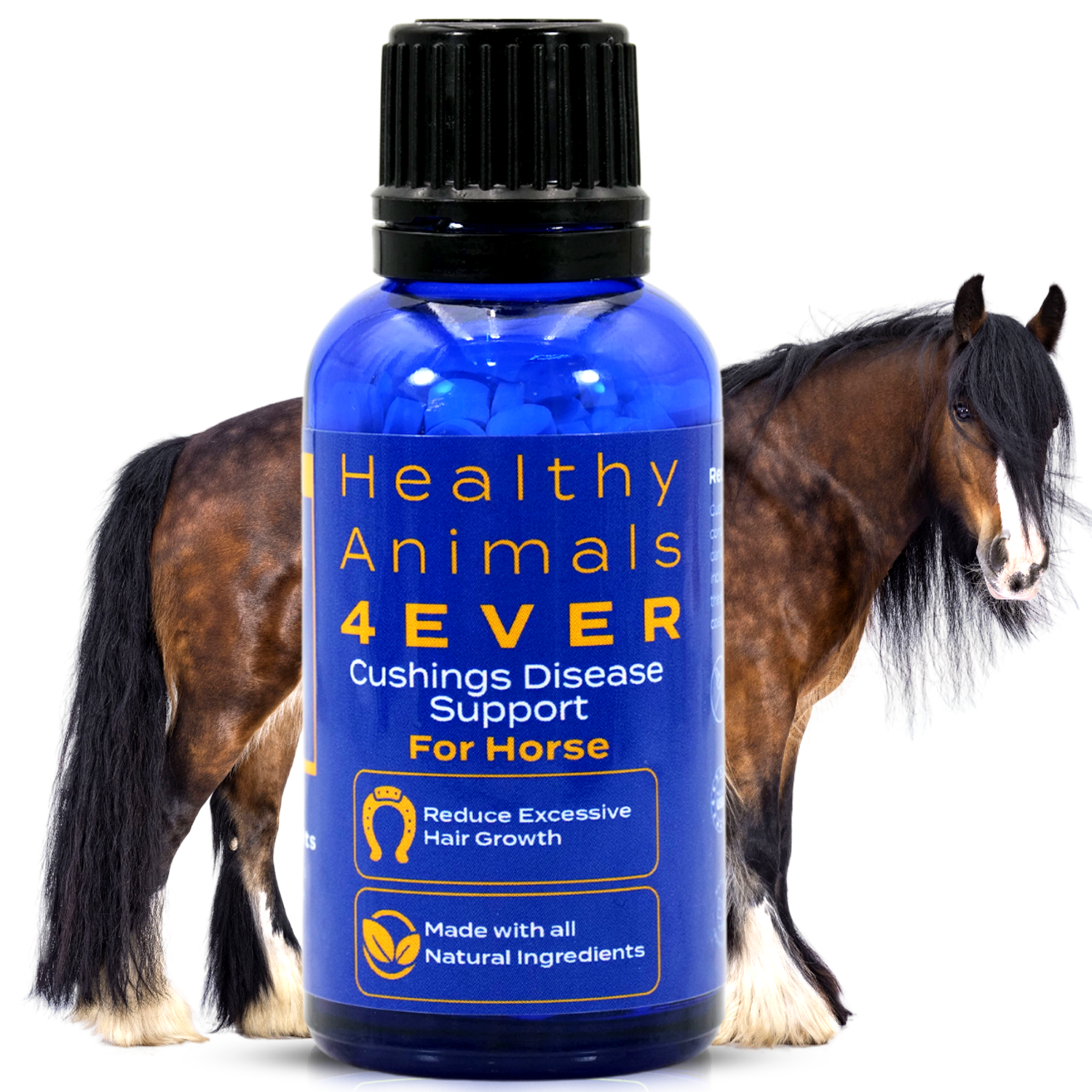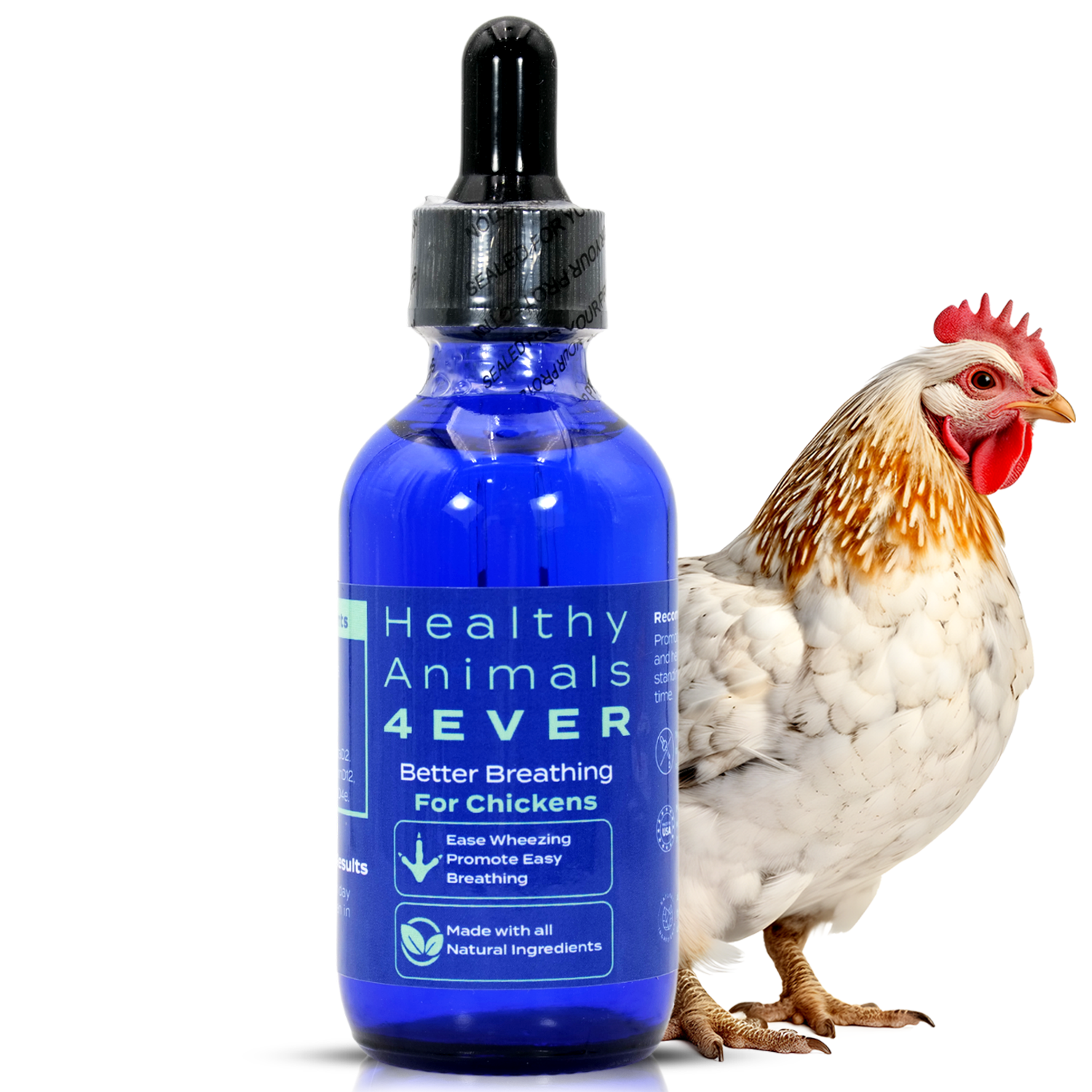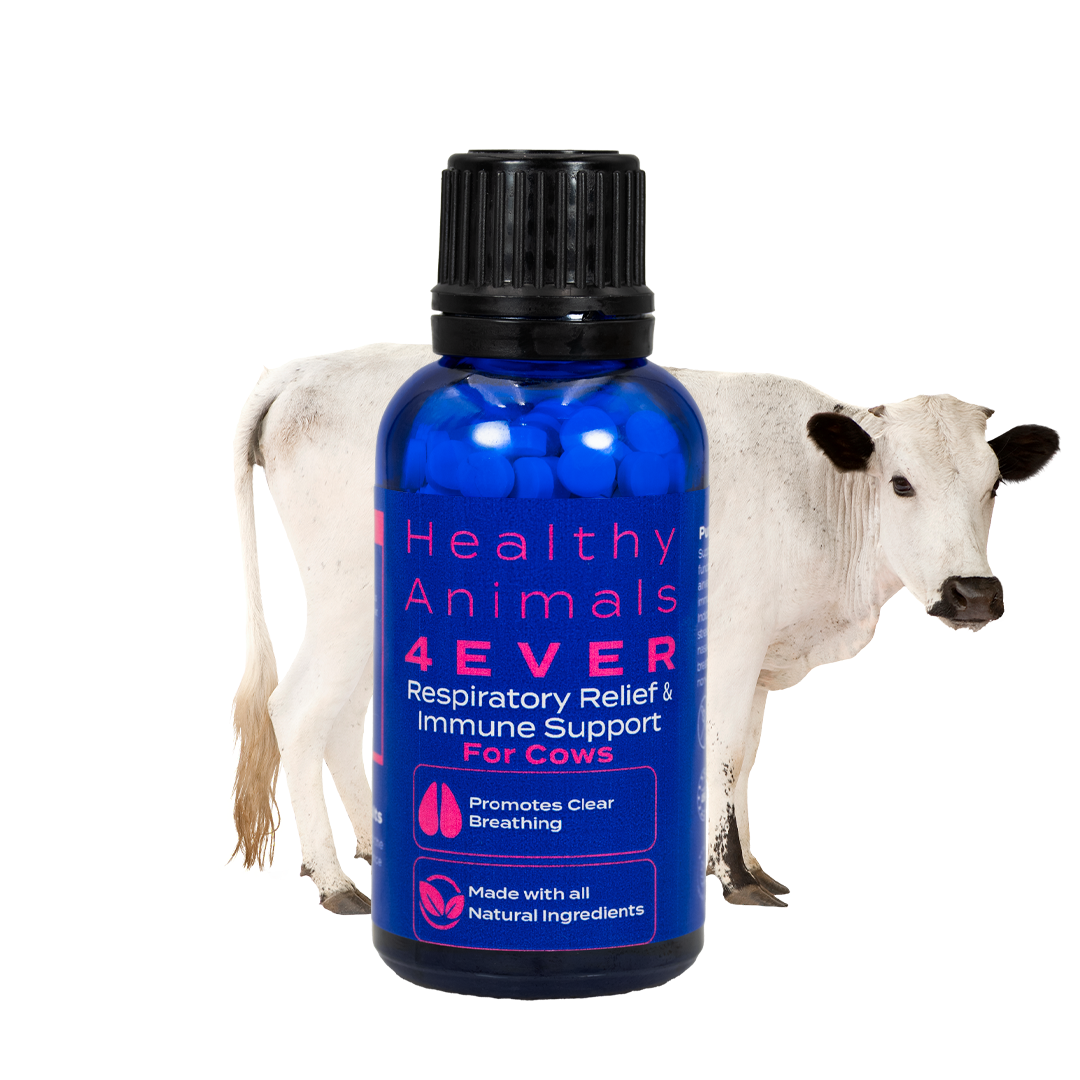A Guide to Homeopathic Winter Care for Chickens
Caring for chickens during cold weather can be challenging. Chickens are more prone to illnesses when the temperatures are low. Their immune systems can get stressed, and they might struggle to cope with sudden weather changes. If you raise chickens, you've probably noticed how the cold can affect their behavior, health, and even egg production.
This is where homeopathy comes in as a helpful and natural way to support their health. Homeopathic remedies are made from natural substances and work gently to stimulate the body’s ability to heal itself. They don’t have harmful side effects, which makes them an appealing option for anyone looking to care for their flock in a holistic way.
In this blog, we'll look at some of the most common cold weather ailments chickens face and how specific homeopathic remedies can help. Keep your flock healthy and happy all season long with these natural solutions!
Common Cold Weather Ailments in Chickens
Cold weather can be tough on chickens, often increasing the risk of illnesses. Understanding the common health issues they face during winter makes it easier to catch early warning signs and provide the right winter care. Here are some of the most frequent issues your flock might deal with when temperatures drop.

Respiratory Issues
Winter weather often comes with dampness and poor coop ventilation, leading to respiratory problems. Chickens can develop colds, sneezing, wheezing, or more serious conditions like Chronic Respiratory Disease (CRD) or bronchitis. If you notice symptoms like nasal discharge, labored breathing, or coughing, these are red flags that something is wrong. Respiratory issues can spread quickly, so it's essential to act fast if one bird shows signs of illness.
Frostbite
When temperatures dip below freezing, chickens, especially those with large combs and wattles, are at risk of frostbite. You'll often notice pale or blackened tips on their combs, wattles, or toes. This condition happens when body parts exposed to cold lose circulation. While frostbite isn't usually life-threatening, it can be painful and cause lasting damage if it isn't treated or prevented.
Digestive Upsets
Winter brings changes to a chicken’s diet and activity levels. With less access to natural foraging and more reliance on feed, their digestion can get out of sync. You might see issues like diarrhea, sluggish digestion, or loss of appetite. Stress from the cold can make this worse. Keeping their digestive health in check is key to keeping their energy levels up.
Weak Immune Systems
Chickens' immune systems can become strained during cold weather. Exposure to drafts, dampness, or poor nutrition can make them more vulnerable to illnesses. You may notice signs like lethargy, dull feathers, or a drop in egg production. A weakened immune system often makes chickens more prone to secondary infections, making it essential to support their overall health.
General Stress
Chickens feel the effects of stress in the winter just like any other animal. Shorter days, cramped spaces in the coop, and colder temperatures can lead to behavioral changes like feather pecking, reduced laying, or irritability. Stress can weaken their resistance to disease, so creating a low-stress, healthy environment is just as important as addressing physical symptoms.
Nutritional Deficiency provides natural support for nutritional deficiency. It was designed for optimal digestion and nutrient absorption, and it promotes overall strength and vitality.
Benefits of Homeopathic Remedies for Chickens
When it comes to caring for your chickens during the winter, homeopathy can be a helpful and natural option to consider. These remedies are designed to work gently with the body, promoting healing and overall well-being without the risk of harsh side effects. Homeopathy offers a practical and effective way to support flock health for people raising chickens, whether on a small homestead or in a backyard setup.

Safe and Gentle
One of the most significant benefits of homeopathic remedies is that they're safe to use, even for sensitive animals like chickens. Unlike certain medications that might come with a risk of toxicity or residues in eggs and meat, homeopathic treatments are made from highly diluted natural substances. This means they won't cause harm or throw off your chicken's natural balance.
No Antibiotic Overuse
Relying too heavily on antibiotics for poultry health can lead to long-term problems, including resistance to antibiotics. Homeopathy provides an alternative for treating minor illnesses or supporting recovery, helping you reduce the need for antibiotics unless absolutely necessary. It's an approach that's good for your chickens and helps address broader concerns about antibiotic resistance.
Cost-Effective
Homeopathic remedies can be quite affordable compared to some medications or veterinary treatments. Since the doses are very small, a single bottle of a remedy can last a long time. For backyard chicken keepers, this makes homeopathy a budget-friendly option for managing common ailments.
Supports Overall Health
While homeopathy is often used to treat specific issues, it also helps strengthen your flock's overall health. Specific remedies can boost the immune system, improve circulation, or calm stress, which can be particularly helpful during the colder months. Instead of just addressing symptoms, homeopathy works to improve the body's ability to heal itself.
Easy to Administer
Homeopathic remedies are simple to give to chickens. They come in different forms, such as pellets or liquids, and can easily be added to water, feed, or even given directly if needed. You don't need special tools or techniques, which makes homeopathy accessible to anyone, regardless of experience level.
Fits Into Holistic Care
Many people raising chickens focus on natural and holistic approaches to care, and homeopathy fits right into that philosophy. Alongside proper nutrition, clean coops, and good ventilation, homeopathy can be another way to help your chickens stay healthy during the winter. It's a small but meaningful addition to your overall winter care routine.
Using homeopathic remedies gives your chickens a gentle and natural boost that supports their health without the downsides of harsher treatments. It's not about replacing every other care method but adding a valuable tool to your toolbox.
Egg Booster provides natural stress relief for chickens, promotes stronger eggshells, and boosts egg production.
Essential Homeopathic Remedies for Common Ailments
When your chickens face health issues in cold weather, homeopathic remedies can be a great way to help them recover. These remedies are easy to use, natural, and specific to different symptoms. Below, you’ll find some of the most common ailments chickens experience during winter and the remedies that can help.

Respiratory Issues
Chickens are prone to respiratory problems in cold, damp weather. If your flock is sneezing, coughing, or breathing heavily, the proper remedy can help ease their symptoms and support recovery:
Aconitum Napellus is a great remedy for colds that start suddenly after exposure to chilly winds or a sudden drop in temperature. If your chicken is showing early signs of illness, like sneezing or restlessness, Aconitum can help if given right away.
Bryonia Alba: Use this remedy if your chicken has a dry, painful cough or is breathing heavily, especially if it seems irritable or wants to stay still.
Antimonium Tartaricum: This is a go-to remedy for rattling mucus in the chest. If your chicken is wheezing or struggling to clear mucus, this can help ease their discomfort.
Frostbite and Circulation Problems
Frostbite can cause damage to a chicken’s combs, wattles, or feet during freezing temperatures. Poor circulation can make the problem worse. These remedies are helpful:
Arnica Montana: Known for its ability to reduce inflammation, Arnica can be used after frostbite is detected to reduce swelling and promote healing.
Secale Cornutum: This remedy works well for poor circulation, especially if the frostbite area looks dark or feels cold to the touch.
Digestive Upsets
Chickens can experience digestive troubles in winter due to changes in diet or stress from the cold. Here are two remedies that can help:
Nux Vomica: If your chicken seems bloated, sluggish, or out of sorts after overeating or eating something unusual, Nux Vomica can help restore balance.
Arsenicum Album: This is helpful for diarrhea, especially if your chicken appears weak or has been eating spoiled food.
Immune Support and General Weakness
Cold weather can weaken a chicken’s immune system, making them more vulnerable to infections and fatigue. These remedies help support overall health:
Echinacea: A natural immune booster, Echinacea can help chickens fight off infections and recover more quickly from illnesses.
Calcarea Carbonica: This remedy is excellent for sluggish, slow-growing, or easily stressed chickens. It's beneficial for younger or weaker birds that struggle in colder weather.
These remedies are easy to find and come in forms like pellets or liquids. They're safe to use and can be combined with other natural care methods to keep your chickens healthy during winter.
Marek Defense strengthens chickens’ immunity and promotes overall health and vitality.
Preventative Care Tips for Winter
Keeping your chickens healthy during cold weather starts with prevention. A little preparation and regular care can go a long way in keeping your flock comfortable and reducing the risk of illness. Here are some practical tips to help your chickens thrive through the winter months:

Ensure Proper Coop Ventilation
Good ventilation is one of the most important things for your coop during winter. While it’s tempting to seal every crack to keep out the cold, this can trap moisture and ammonia fumes inside. These conditions can lead to respiratory problems. Aim for a coop that’s draft-free but still allows fresh air to circulate. Ventilation openings near the roof can help let out humid air without chilling your birds.
Reduce Dampness
Dampness is a more significant threat to your chickens than cold temperatures. Wet bedding, water spills, or leaks in the coop can create a breeding ground for bacteria and increase the risk of frostbite. Use absorbent bedding like straw or wood shavings and change it regularly to keep things dry. Ensure your coop roof and walls are waterproof, and position waterers so they don't spill onto the floor.
Provide Warmth Without Overheating
While chickens are surprisingly hardy in cold weather, they'll appreciate a warm and cozy space. You don't need to heat the coop excessively, as this can make chickens less able to tolerate temperature changes. Instead, focus on insulation. Add extra bedding, use windbreaks around the coop, and block drafts. If temperatures drop severely, a heat lamp or radiant heater can be used, but ensure it's installed safely to avoid fire risks.
Feed for Energy
In winter, chickens need more energy to stay warm, so their diet should reflect this. Offer feed with higher calorie content and consider supplementing with cracked corn or other grains to give them a boost. Providing treats like sunflower seeds or oatmeal in moderation can also help. Fresh greens, such as kale or spinach, are an excellent addition for extra vitamins when free-ranging options are limited.
Fresh Water Is Essential
Keeping water from freezing is a constant challenge in winter. Chickens need access to fresh, clean water at all times, so invest in a heated waterer or check their water regularly throughout the day. Avoid using metal bowls, which can freeze quickly and make it harder for chickens to drink.
Watch for Signs of Stress
Cold weather can cause stress in your flock, which weakens their immune systems. Signs of stress include feather pecking, reduced egg laying, and lethargy. To minimize stress, keep the coop clean, ensure enough space for all birds, and provide plenty of roosting space so they can huddle together for warmth.
Keep an Eye on Their Feet and Combs
Frostbite is common in cold weather, especially for chickens with large combs or wattles. Apply petroleum jelly to these areas as a protective barrier during freezing conditions. Check their feet regularly for any signs of frostbite or injury, especially if the ground is icy or snowy.
Encourage Activity
Chickens become less active in winter, but boredom can lead to stress and pecking. Provide enrichment by hanging vegetables like cabbage or lettuce in the coop for them to peck at. Scatter feed in their bedding to encourage scratching and foraging, and if possible, clear a small outdoor area for them to roam safely when the weather allows.
Better Breathing promotes easy breathing by minimizing respiratory discomfort and wheezing.
The Bottom Line
Caring for your chickens during the cold months doesn’t have to be overwhelming. Understanding the common health issues they face, such as respiratory problems, frostbite, and stress, gives you the knowledge to step in early when something seems off.
Homeopathic remedies can be a great tool to have on hand, providing gentle and natural support for your chickens when they need it. Whether addressing specific ailments like colds or frostbite or simply boosting their overall health, these treatments offer a safe and effective way to help your birds without adding unnecessary chemicals to their environment.
Of course, prevention is always better than cure. A well-ventilated coop, proper nutrition, and plenty of fresh water can make all the difference in keeping your flock thriving during the colder months. Combining thoughtful care with natural remedies gives your chickens the best chance to stay healthy, happy, and productive through the winter.












